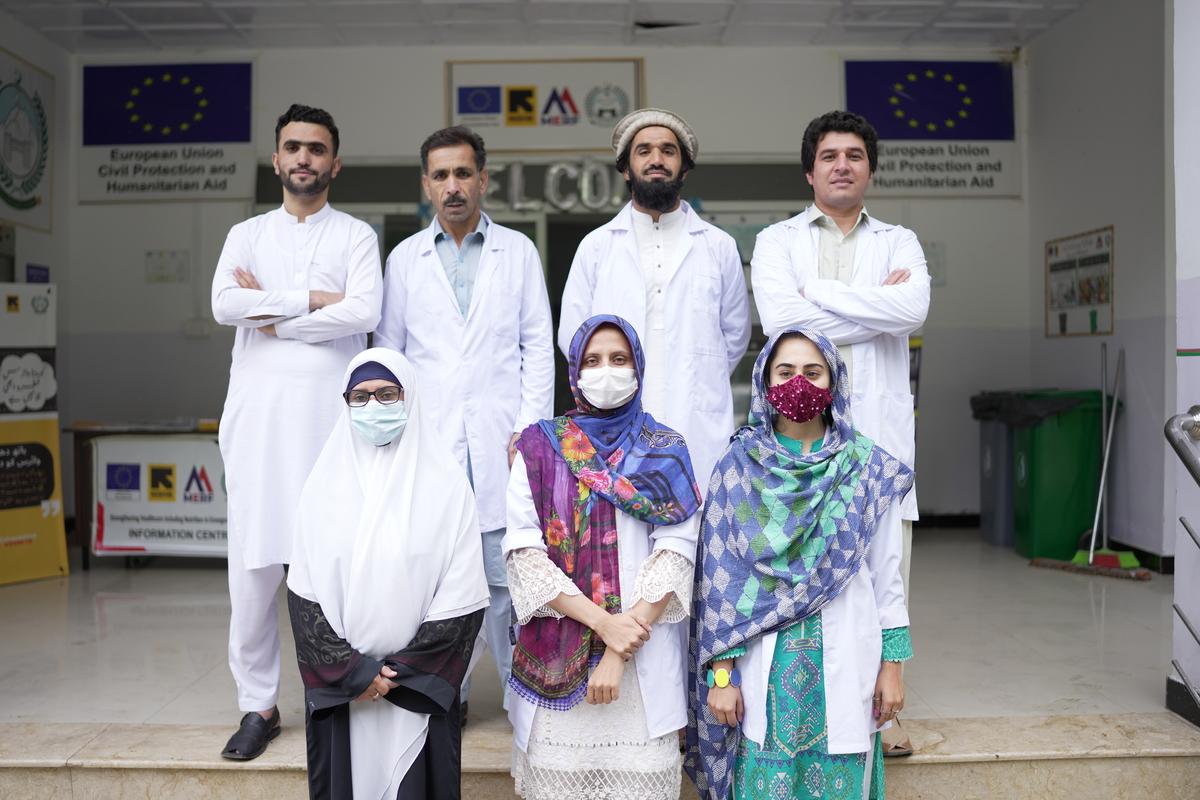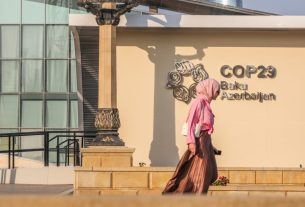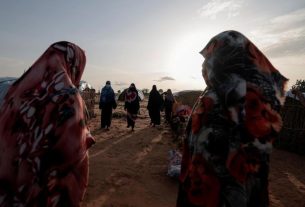Pakistan remains one of the most disaster-prone countries in the world.
Regional instability, climate change, and widespread poverty have only contributed to a rising number of humanitarian emergencies in Pakistan. Many struggle to meet their basic needs, including adequate food, sanitation, and healthcare.
Coupled with catastrophic flooding in the summer of 2022 — which impacted 33 million people across the country — Pakistan is reeling from devastating shocks to both its infrastructure and economy in the aftermath.
Thanks to EU humanitarian funding, the International Rescue Committee (IRC) responds to the most pressing needs on the ground.
With a particular focus on the most affected, such as women, girls, and children, the IRC, together with the Medical Emergency Resilience Foundation (MERF) and the EU, has been running humanitarian programmes aimed at covering their basic needs.
This includes providing safe and meaningful access to integrated protection, health, nutrition, education, and water, sanitation and hygiene services, in the country’s northwest.
To respond to the most pressing health needs, IRC is prioritising healthcare system strengthening and responding to food insecurity.
Through pictures, get a glimpse of the work we have done in the north-western province of Khyber Pakhtunkhwa.
In Khyber Pakhtunkhwa, there are not enough healthcare facilities and infrastructure is fragile, despite the needs. Many people find it difficult to get the kind of medical help they need, especially services related to pregnancy and children.
© IRC, 2023 (photographer: Junaid Mukhtar)
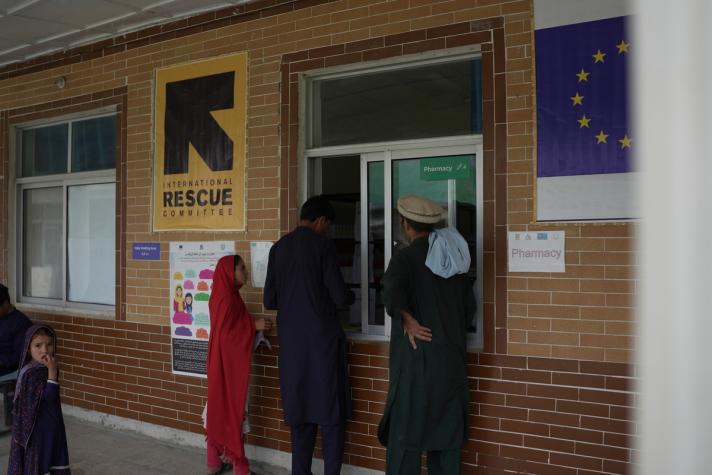
One of the IRC’s goals is to increase the health care system’s capacity to ensure those in need get access to the vital support. In the EU-funded health centres, pharmacy corners are set up to provide patients with quality medication, free of charge.
© IRC, 2023 (photographer: Junaid Mukhtar)

The health centres are open to anyone with whatever needs and concerns they may have. Through animations and pamphlets on maternal health and hygiene, IRC ensures that information on healthy behaviours is available everywhere.
© IRC, 2023 (photographer: Junaid Mukhtar)

“I noticed that they were growing weak and could not sit even though they were two years old,” says Shakeel, father of 2-year-old twins. After hearing about the IRC’s EU-funded health facility, he started to come for regular check-ups.
© IRC, 2023 (photographer: Junaid Mukhtar)
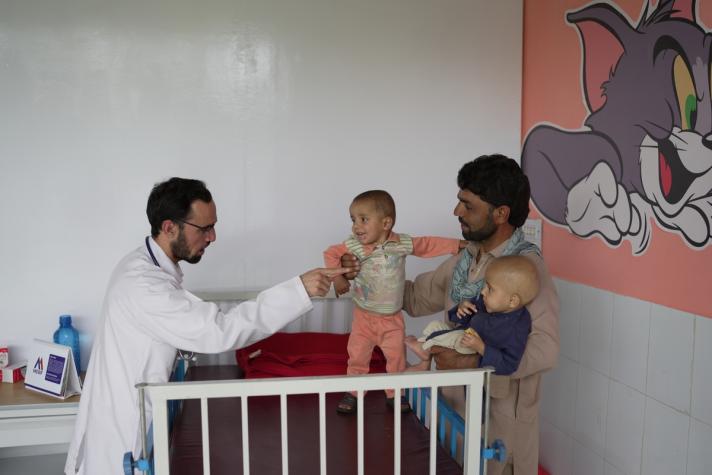
Doctor Mujahid Hussaein diagnosed that Shakeel’s twins were severely malnourished. However, after starting treatment at the healthcare centre, the boys have become healthier. “The parents feel very relieved now,” says Mujahid.
© IRC, 2023 (photographer: Junaid Mukhtar)
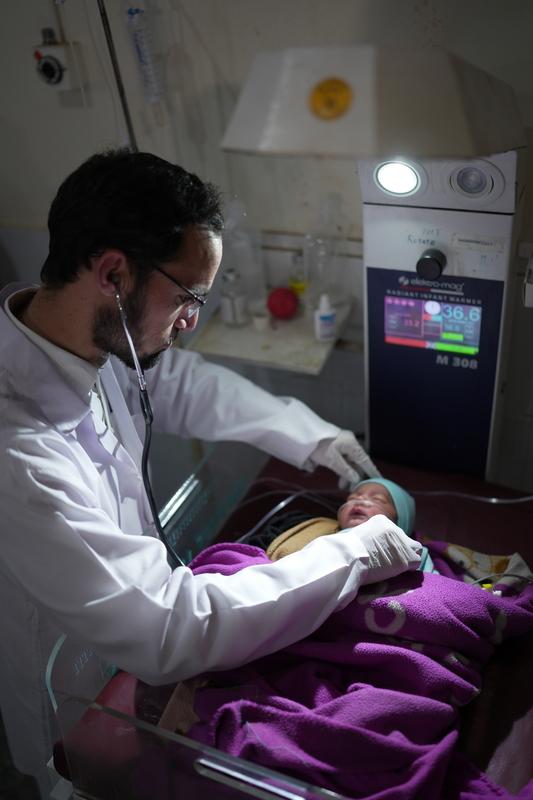
Coming from the same place as most of his patients, Mujahid feels privileged to play a part in ensuring the health and safety of children and infants in the community. “I am proud to be a source of help to my people,” he says.
© IRC, 2023 (photographer: Junaid Mukhtar)
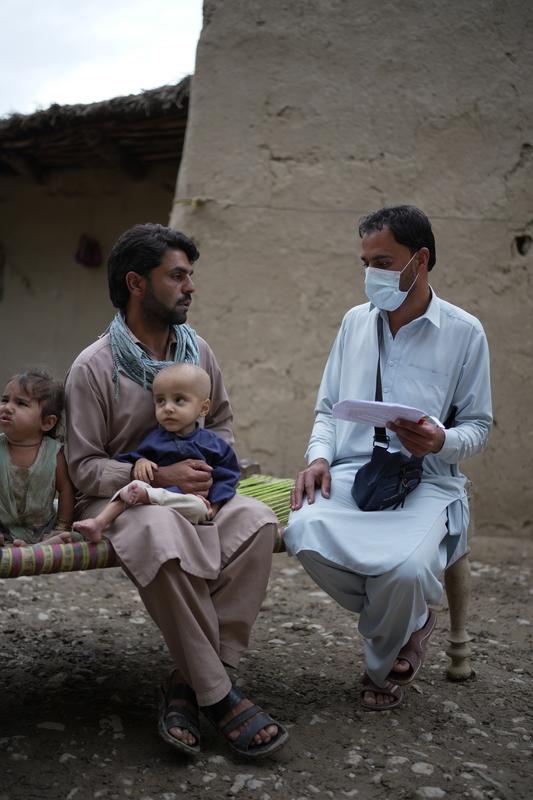
The health officers are well aware of the needs of most of their patients. Many even visit their patients at their homes. By listening to their problems and seeing their living conditions, they’re able to get them the support they require.
© IRC, 2023 (photographer: Junaid Mukhtar)

The health services also extend to mental health and psychological support. Khalid, a resident of the community, visits the IRC’s facility because he thought he was suffering from a stomach problem.
© IRC, 2023 (photographer: Junaid Mukhtar)
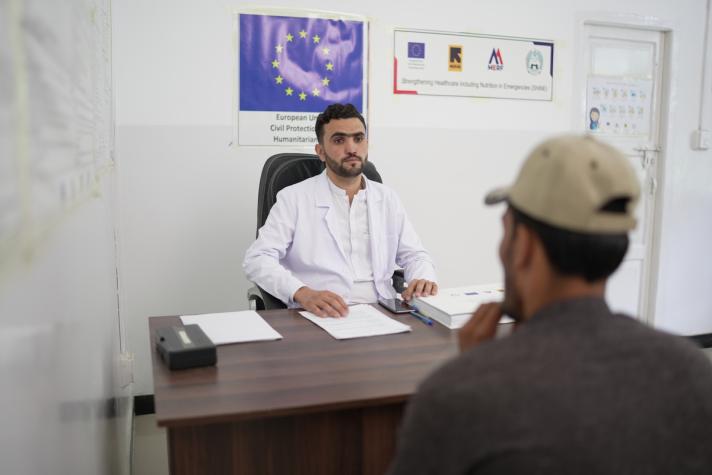
He was referred to the resident psychologist, and eventually diagnosed with anxiety. After going through several counselling sessions, he says he feels happier and more content today.
© IRC, 2023 (photographer: Junaid Mukhtar)
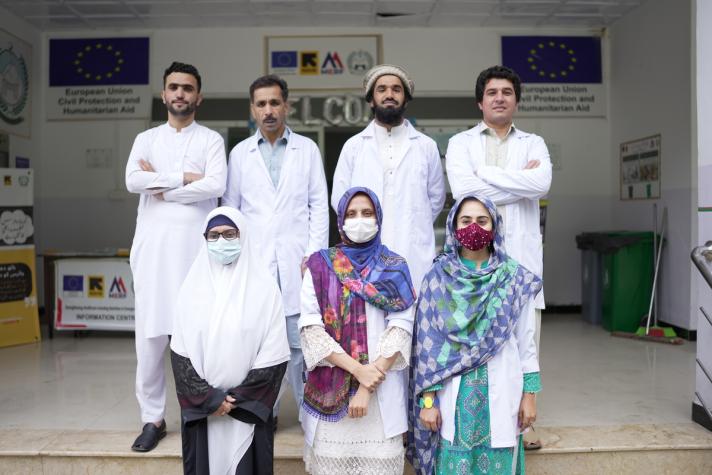
With the unwavering support from the staff, the community feels reassured that someone is there to help them when times are tough.
Seeing the smiles and laughter of the patients they treat, the health staff keep their spirits high, no matter what obstacles they must overcome. © IRC, 2023 (photographer: Junaid Mukhtar)
